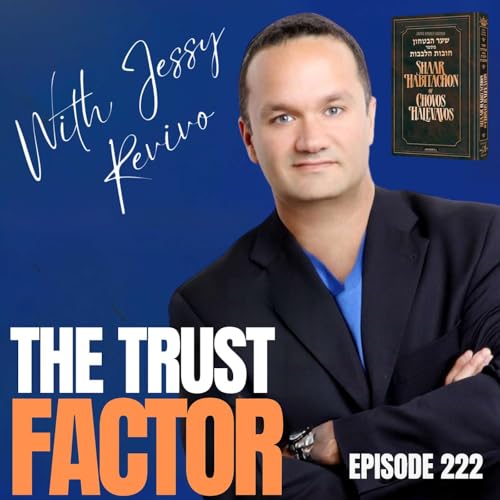Send us a text
The world feels loud, fast, and certain about the wrong things. We slow down to map trust—not as wishful thinking, but as a learned practice that matures across life’s highs and lows. Starting from the messiness of the real world, we explore how attention and awareness shape the quality of our faith, why growth often spikes in crisis and dips in comfort, and how to hold steady when the pressure to drift is constant.
We walk through ten levels of trust split across early and later years. In the early arc, trust grows from lived experience: someone shows up for you, you remember, and your confidence becomes knowledge. In the mature arc, trust widens into purpose—aligning daily choices with a deeper mission and seeing providence in timing, helpers, and outcomes you couldn’t script. Using the parent-child relationship as a model, we show how consistent care builds a blueprint for trust that ultimately points to the Creator, whose attention and capacity have no limits. When that awareness takes root, trust stops being a mood and becomes a way of moving through the world.
We also press into the meaning of Yehudi, rooted in hoda’a: testimony and gratitude. Testimony means naming truth in an age of spin; gratitude means acknowledging gifts and the people who carry them into our lives. Together they form a clear, grounded response to a culture that often flips the script on the Jewish story. Expect practical takeaways on building steady trust during abundance and adversity, speaking clearly without becoming combative, and cultivating daily habits that reinforce awareness, courage, and humility.
If this conversation helps you find your footing, share it with someone who needs strength today, hit follow to get future episodes, and leave a review with a quote that resonated—your words help others discover the show.
Support the show
#thetrustpactorpodcast
https://podcasts.apple.com/.../the-trust.../id1803418137
https://open.spotify.com/show/2xheh4uQ0xCYGGNVimSSWw
https://chat.whatsapp.com/ICNYcOL39CtGG2YtaWui38
Torah wisdom, Shaar HaBitachon, Gate of Trust, Jewish spirituality, personal growth Torah, bitachon, emunah, Torah lessons daily, Jewish personal development, overcoming anxiety Torah, faith-based confidence, emotional strength Judaism, purpose and meaning, how to trust God, Mussar teachings, Jewish life, guidance, sp...
 12 分
12 分 13 分
13 分 12 分
12 分 9 分
9 分 13 分
13 分 13 分
13 分
 10 分
10 分
